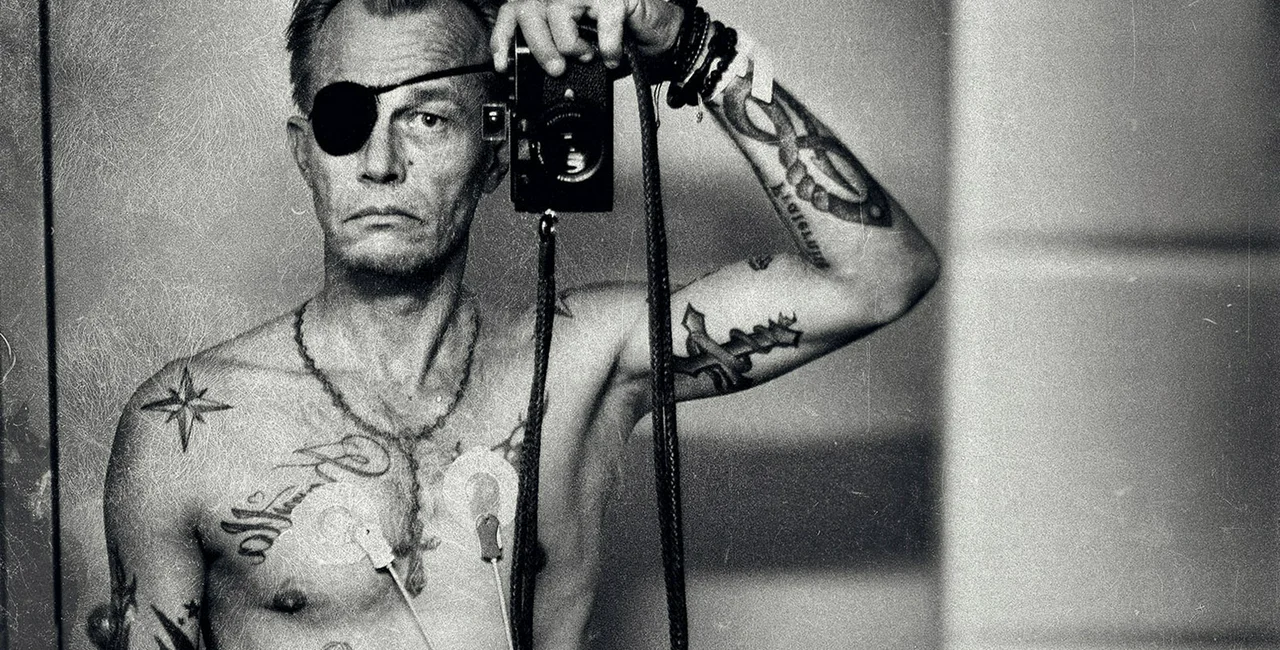The environmental crisis will also be among the topics of this year’s One World International Human Rights Documentary Film Festival, which will take place March 5 to 14 in Prague at Lucerna, Světozor. Atlas, Bio Oko, Evald, Kino 35 (French Institute), Municipal Library, Ponrepo, DOX and other venues. All films have Czech and English subtitles. Selected films have open captions for the hearing impaired.
The festival, also called Jeden svět, will present 133 documentaries from 60 countries in 16 categories. There are 21 world and international premieres, plus six European premieres. Some 130 guests are expected. After Prague the festival will go to 26 other cities throughout the Czech Republic and Brussels.
PARTNER ARTICLE
For people who can’t afford tickets, One World has come up with “dangling tickets.” The information stands in Lucerna and the Municipal Library will offer the option of buying an extra ticket and leaving it dangling from a special ticket hanger.
The festival opens with the Oscar-nominated Honeyland, about a traditional beekeeper in the mountain regions of North Macedonia. The film offers insight into the current state of our civilization.
Two more Oscar nominated films are in the schedule. The Cave is the second Oscar-nominated film by international jury member Feras Fayyad. It is about a Syrian doctor who runs an underground hospital. For Sama is about a journalist and filmmaker who reports on the Syrian conflict as a witness for her newborn daughter Sama. The film was also nominated for a BAFTA Award.
This year’s motto is “Not till a hot January,” which comes from a Shakespeare play. While it used to mean never, now it has become reality.
Over the past three years this subject has had their own category, UnEarthed. This year, it is the main thematic category. “By combining creative documentaries, accompanying events, and VR projects, we hope to provide a broad overview of the climate crisis – compared to other festivals that also address this subject, the diverse range of perspectives is truly unique. For instance, you can attend a workshop on fermenting seasonal vegetables, see a film on environmental racism, … explore nature in a dead forest at DOX, or immerse yourself in an emotional VR environment,” festival programming director Ondřej Moravec said.
The festival also has three competition categories: Czech Competition, International Competition, and Right to Know. The Czech Competition has 11 films, including five world premieres. Topics range from an outside look at climate change in the Czech Republic to life for a nomad moving to a big city in Mongolia.
The International Competition presents foreign documentaries that will be vying for Best Film and Best Director. World and international premieres will be competing with documentaries that won awards at the Sundance film festival.
In the Right to Know category, the Václav Havel Jury will be judging films that contribute, in a unique manner, to protecting human rights or that present powerful stories of people engaged in fighting for human rights. Former Vietnamese pop star Mai Khoi, who sat on the Václav Havel Jury in 2017, will present her documentary Mai Khoi & The Dissidents, which follows her transformation from prominent singer into an enemy of the communist regime. Advocate looks at issues in Palestine and Sea-Watch 3 examines the ongoing refugee crisis.
The category Masculinity and Femininity shows different perspectives on male and female gender roles, include men’s and women’s roles in society, at work, and in the family. The lives of men in Finland, one of the most emancipated counties for women, is seen in The Happiest Man On Earth. On the other end of the spectrum, Mrs F. looks at an activist in Nigeria trying to help women gain respect.
Documentaries in the category Gaps in the System look at gentrification, the sex trade, and cultural identity. Another new category this year is Diagnosis, with films on health and healthcare. A new regional category this year is China: Powerful and Powerless, looking at life in a totalitarian system.
The popular traditional category Panorama showcases internationally recognized and award-winning documentary films. Photographer of War presents World Press Photo laureate Jan Grarup and his personal struggles. The Feminister takes a behind-the-scenes look at Sweden’s former Minister of Foreign Affairs Margot Wallström, who promoted a feminist foreign policy. The Letter examines lynching of dozens of people in Kenya who have been accused of sorcery.
The Journeys to Freedom category examines the situation in countries with undemocratic regimes. In one entry, War of Art, Norwegian director Tommy Gulliksen takes artists on a cultural exchange to North Korea.
The category One Zero probes the challenges and dangers of modern technology. Domestic robots, Buddhist monks with smart phones, and online child abuse are among the subjects.
Different approaches to approach everyday are found in the Long Live Life! category. The film When Tomatoes Met Wagner has cousins from a small Greek village trying to improve their tomato harvest by playing classical music in an effort to revive regional farming.
There is also a retrospective of American-based Chinese director Nanfu Want, who first caught the world’s attention with her 2016 debut film Hooligan Sparrow about human rights activist Ye Haiyan. The retrospective also presents her documentary I Am Another You and her most recent work, One Child Nation, which won the Grand Jury Award for best documentary film at the Sundance film festival.
Running parallel to the One World festival is the East Doc Platform, which includes master classes, discussions and screenings for both industry professionals and the public.
More information on the festival can be found here.












 Reading time: 4 minutes
Reading time: 4 minutes 





























